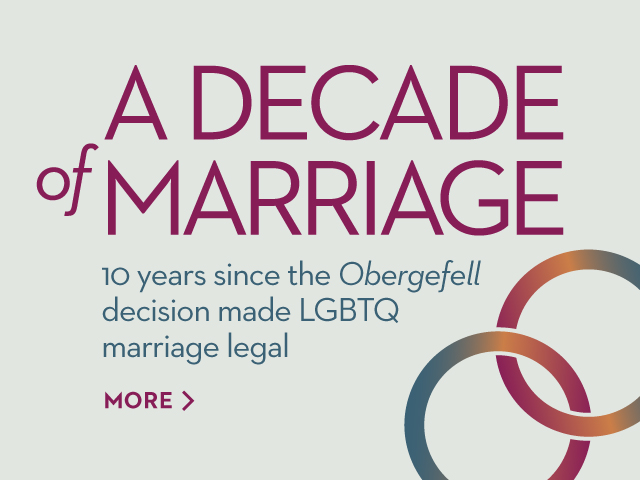Over 3 million LGBTQ people live in rural areas of this country, and meet many of the same joys and challenges as their non-LGBTQ counterparts. However, some of the structural challenges facing all rural residents may heighten difficulties that LGBTQ people everywhere encounter such as discrimination and a struggle to find LGBTQ-friendly providers of healthcare, legal assistance, social support, and education. NCLR works to ensure that legal protections are accessible to LGBTQ people everywhere, including rural communities, so that nobody has to choose between fully expressing who they are and where they call home.
Advocacy
Legislation & Policy
LGBTQ Rural Pride Campaign
Nationwide
The Rural Pride Campaign elevates and addresses the needs of LGBTQ people living in rural communities across the country. It began in 2014 as a partnership with the U.S. Department of Agriculture (USDA). USDA no longer partners with NCLR on this campaign, but the work continues.
The goal of the campaign is to challenge the stereotype that LGBTQ people live only in metropolitan areas by elevating the voices and stories of LGBTQ people living in rural America. The campaign also raises awareness of the particular issues faced by LGBTQ rural communities, including increased rates of economic insecurity, lack of family protections, lack of nondiscrimination protections, and the heightened challenges facing rural LGBTQ youth and rural LGBTQ people of color.
The centerpiece of the campaign is a series of day-long summits hosted by NCLR and local partners based in rural communities across the country. These summits focus on the unique needs of the rural LGBTQ community and identify next steps to ensure all rural communities have access to the resources they need to thrive.
Cases & Advocacy
Ketcham v. Regence Bluecross Blueshield of Oregon
Oregon
Christina Ketcham is a 60-year-old transgender woman who started her transition over four years ago and continues to experience significant distress from the incongruence between her typically masculine facial features and her identity as a woman. To alleviate that distress, Christina’s treating healthcare providers determined that certain facial feminization procedures are medically necessary to treat her gender dysphoria. But, the health insurance offered by her employer has a categorical exclusion for all facial feminization procedures.
Resources
Press Release
NCLR Vermont Rural Pride to Focus on LGBTQ Issues in Rural Communities
April 26, 2018. Tomorrow, the National Center for Lesbian Rights (NCLR) and Green Mountain Crossroads will host a day-long convening addressing the challenges and needs of LGBTQ people in rural areas. This free event will bring together local, state, and national leaders in the LGBTQ movement and members of the community to share information and devise strategies to ensure that LGBTQ equality continues to advance during challenging political times.










